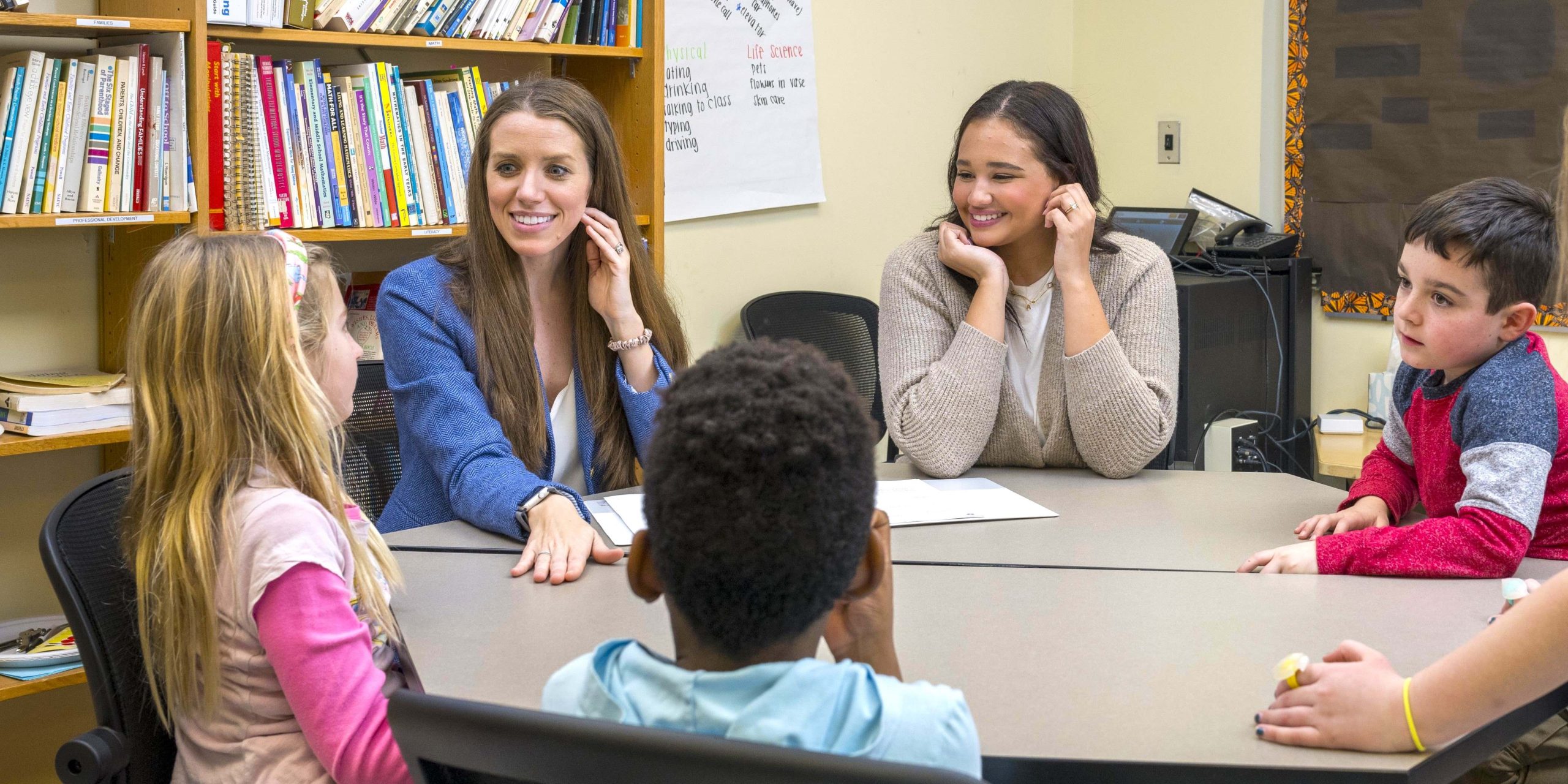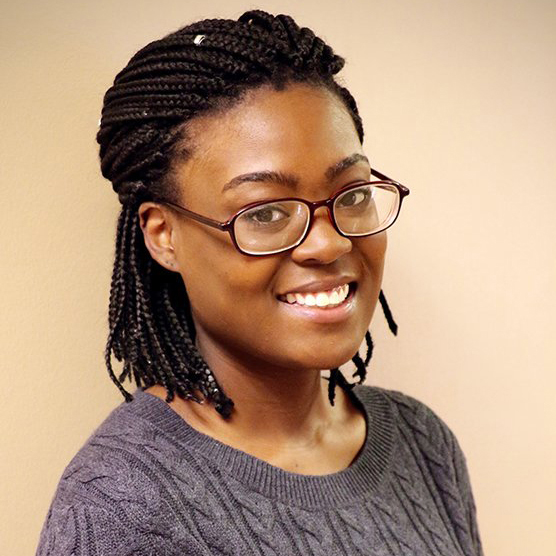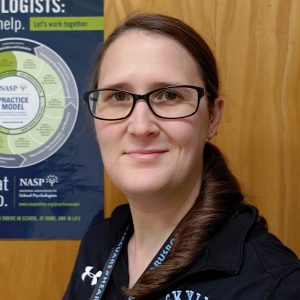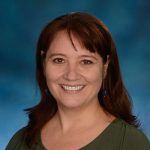School of Education
M.A./Ed.S. in School Psychology

The M.A./Ed.S. program in school psychology at the University of Delaware prepares students for careers in school psychology, enabling graduates to obtain the necessary credentials to work as school psychologists in K-12 schools.
Our small, selective program is characterized not only by outstanding students, but also by a highly productive and caring faculty of excellent teachers and researchers.
The school psychology program is based on the Standards for School Psychology Training Programs developed by the National Association of School Psychologists (2020).
Stay connected to the UD school psychology program by following our student-run Instagram page (@udschoolpsychstudents).
The most basic function of a school psychologist is problem solving in schools. Problems may involve individuals (children, parents, or educators) or they may involve larger systems (e.g., school wide prevention programs, school community problems). Despite these varying forms, all problems or issues must be assessed systematically and interventions must be developed in ways that facilitate evaluation of their efficacy. This problem solving process requires multiple competencies in a wide range of functions, including:
- Assessment of children’s intellectual, social, and emotional functioning
- Design and implement interventions for promoting children’s academic, cognitive, social, and emotional development
- Consult and collaborate with parents, teachers, and others
- Design and implement comprehensive prevention and intervention programs for children, school personnel, and parents
- Research and evaluation in psychology and education
For more information about school psychology as a career, you may be interested in consulting The National Association of School Psychologists website.
Prospective students frequently ask about the differences between school psychologists and school counselors. We excerpted this information from NASP’s list of Frequently Asked Questions.
School psychology training brings together the knowledge base of several disciplines, including child psychology and development and education with an emphasis on special education. In most states and training programs, school counseling does not include training or work with special education populations. In addition, most states require three years of graduate school training, including a 1200-hour internship, to become a credentialed school psychologist. In comparison, the Council for Accreditation of Counseling and Related Educational Programs (CACREP) indicates that accredited master’s degree programs in school counseling include a minimum of two years of full-time study, including 600 hours of supervised internship.
In the school setting, counselors typically work with the total school population regarding a variety of issues – family and academic problems, career planning, course schedules and problem solving around course selection and scheduling, etc. In some districts, elementary counselors in particular conduct groups regarding family changes, social skills, etc. With older students, they may also be involved in chemical dependency prevention and early intervention activities, crisis intervention, mental health counseling, etc.
School psychologists are typically funded through special education monies and often their first responsibility is to the population of students at risk for failure and who have identified disabilities. With these populations, their roles include assessment (comprehensive evaluations of disability and risk), consultation regarding instructional and behavioral interventions, and direct interventions including crisis prevention/intervention, individual and group counseling and skill training. In this latter role, school psychologists may overlap the duties of counselors and social workers, and often will work jointly with these other professionals by co-leading social skills groups and jointly serving on crisis support teams. Relative to counselors, school psychologists are more likely to have training in behavioral analysis, mental health screening and diagnosis, research methods (and application of research to classroom practices), and specific disability areas.
Training as a school psychologist will provide broader options both within and outside of school settings. School psychologists are often employed by other agencies in addition to schools – community mental health centers, pediatric departments of hospitals, corrections facilities, etc.
Within school settings, there are growing opportunities for varied roles as a school psychologist as districts tap broader funding sources including grants, prevention and early intervention projects, etc. If direct counseling work with children is appealing, positions emphasizing this role are available to those trained as counselors, social workers, or school psychologists. If a broader range of activities is appealing – comprehensive evaluations of student needs, consultation with parents and teachers regarding achievement and behavior problems, training staff and parents as well as students to be more effective problem solvers and to better understand disability and risk issues, and perhaps conducting research in applied settings – then the field of school psychology might be the best option.
The school psychology program at the University of Delaware was first established in 1981, with the first class consisting of two students admitted in the fall of 1982. From 1981 to 1983, the program had two part-time faculty members in school psychology. At that time it was envisioned that the program would train school psychologists for the state of Delaware, and would eventually become nationally accredited. The program gained approval from the National Association of School Psychologists in 1994. Currently, the 3-year program has three full-time faculty members in school psychology and an enrollment of 24 full-time students and no part-time students.
The program is grounded in the scientist/practitioner model in psychology, and committed to the School of Education’s emphasis on the roles of Scholar, Problem Solver, and Partner. Students are provided with a strong foundation in psychological theory and research and are trained to use a collaborative, data-based problem solving approach when applying this foundation to help solve social, emotional, and academic problems faced by children, schools, and families. In addition to gaining theoretical and empirical knowledge, students acquire competencies in multiple skill areas, a problem solving mindset, and sensitivity and respect for cultural and individual diversity. Consistent with the scientist/practitioner model and the role of Scholar, students are also expected to contribute to the knowledge base in psychology and education — an expectation that is most clear in the doctoral program. The program’s philosophy is reflected in the following goals:
- Students will adhere to the highest standards of ethical and professional conduct and will demonstrate respect for the dignity, worth, and individual differences of children of all cultures and backgrounds.
- Students will use multiple methods of gathering reliable and valid data in the design and implementation of a variety of empirically-supported interventions for addressing problems faced by children, schools, and families.
- Students will acquire an in-depth understanding of modern theories and research in the cognitive, physical, social, and emotional development of children, including knowledge of family and school systems, and will apply such knowledge to the practice of school psychology.
- Students will develop a strong knowledge base specific to the profession of school psychology including its history and foundations, the various roles and functions of school psychologists, and alternative models by which services are delivered.
- Students will acquire and apply specific competencies in school psychology, especially in the areas of assessment, consultation, prevention, and direct interventions, while using an ecological, problem-solving approach in the delivery of psychological services in the schools.
- Students will acquire the knowledge and skills necessary to design and implement comprehensive mental health services, especially school-based services for promoting mental health and preventing social, emotional, and academic problems.
- Students will work collaboratively and effectively with teachers, administrators, support staff, community agencies, children and their families, and others in the delivery of psychological services in the schools.
- Students will apply a data-based, scientific problem solving approach to the delivery of all services, including assessment and intervention. Such services will be guided by current research and an appropriate assessment and analysis of multiple individual and ecological factors that influence learning and development. Evaluation data will be collected to demonstrate that services lead to positive outcomes. Where appropriate, students will use technology effectively in the delivery of assessment and intervention services, including on the acquisition and communication of information.
- Students will develop sufficient knowledge and skills in research, statistics, and evaluation and apply such knowledge and skills in the design and evaluation of programs and services in the schools.
- Students will develop the knowledge and skills in technology to apply in assessment, record keeping, communication, intervention, research, statistics, and evaluation, as well as other areas related to school psychological services.
- An additional goal for students in the Ph.D. program is that they will conduct scholarly research in which they demonstrate competence in identifying critical problems in education and psychology, reviewing and integrating existing research, designing studies and experiments that competently address such problems, collecting and analyzing data using a variety of modern statistical procedures, and formally communicating results to other researchers and practitioners.
The Specialist program requires three years of full-time study. With special permission from the student’s adviser and program coordinator, the equivalent of one year of coursework may be completed part-time.
New students apply to and first enter the Master of Arts (M.A.) in School Psychology program. Upon completion of the first year of coursework (30 credits) and passing of a comprehensive exam, students are awarded an M.A. in School Psychology. All students are expected to continue their studies to earn the Educational Specialist Degree in School Psychology, which requires 30 additional credits including a 1,200-hour internship. It is only upon completion of the full 60-hour integrated program that a student is eligible for certification as a school psychologist in Delaware as well as most other states.
Coursework for Specialist Students
First Year (Master’s Level)
During the first year, you complete the following coursework during the fall, spring, and winter or summer session. During the session in which you take your final course, you become eligible to take the comprehensive exam. Passing this exam qualifies you to receive your Master’s degree.
Fall Semester (12 credits)
- EDUC 618: Introduction to School Psychology
- EDUC 663: Counseling Skills Laboratory
- EDUC 817: Individual Intelligence Testing
- EDUC 744: Educational Measurement and Progress Monitoring
Winter Session (6 credits)
- EDUC 814: Psychological Assessment of Children
- EDUC 623: Applied Human Development
Spring Semester (12 Credits)
- EDUC 671: Practicum in School Psychology
- EDUC 679: Instructing Elementary/Middle Schoolers with Mild Disabilities
- EDUC 830: Consultation and Intervention: School Discipline
- EDUC 870: Child Neuropsychology OR EDUC 842: Assessment of Special Populations
Second Year (Specialist level)
In the second year, students complete the following Specialist coursework, which includes the practica:
Fall Semester (12 credits)
- EDUC 831: Advanced Counseling Techniques
- EDUC 671: Practicum in School Psychology
- EDUC 691: Applied Statistics and Research Design
- EDUC 813: Child Psychopathology
Spring Semester (12 Credits)
- EDUC 671: Practicum in School Psychology
- EDUC 651: School-Based Family Issues and Interventions
- EDUC 841: Consultation and Intervention: Mental Health
- EDUC 870: Child Neuropsychology OR EDUC 842: Assessment of Special Populations
Third Year (Internship)
During the third and final year of the School Psychology Specialist Program, students complete the following requirements:
- Enroll in EDUC 688: Internship in School Psychology, for 3 credits or 6 credits per semester
- Pass the PRAXIS Exam in School Psychology
- Complete the portfolio and have it approved
- Complete the Application for Advanced Degree for conferral of the Specialist Degree
Note: Students who choose to enroll for 3 credits of internship may not be considered “full-time students” for the purpose of deferring student loans. Students are responsible for determining their loan status.
Minimum GPA of 3.5
Students must maintain a minimum cumulative grade point average of 3.5 to be eligible for the Master’s and Specialist degree. Students also must obtain a grade of B- or higher in each practica in order advance to the next level of the program. Additionally, a grade of B- or higher is required during each semester of the internship in order to complete the program and receive the Specialist degree. Note that proficiency in oral and written expression in English is among the requirements in practica and the internship.
Residency Requirement
All students must complete a full-time residency. Minimally, at the Specialist level, students are required to spend one, continuous year (fall semester, spring semester) of full-time course work in the program. This does not include the internship. Full time work is defined as completing nine graduate credit hours per semester. It is strongly recommended that both years of coursework be completed on a full-time basis.
Practica
Three carefully constructed practica (3 separate courses for a total of 9 credits) are a part of every student’s program. The first practicum course orients students to the educational process and focuses on assessment skills. In addition to administering and interpreting a variety of assessment tools, students implement an academic intervention with an individual child, and conduct a functional behavior assessment linked to intervention. In the second and third practica, students refine their assessment skills and develop expertise in direct and indirect interventions (e.g., individual and group counseling, teacher and family consultation, design and implementation of behavior management programs, social skills training). Practicum experiences also are embedded with more content-based courses. For example, during the first semester students shadow and interview a school psychologist and administer a variety of intelligence tests.
Practicum assignments are made by faculty to ensure that students gain experience with children a variety of ages, cultures, and disabilities. Practica require 2 full days per week and are completed in regular school settings; however, one practicum may be completed in a more “specialized” setting, such as programs for children with physical and/or sensory impairments, alternative schools, schools for children with autism or other severe disabilities. Students interested in a particular area should discuss possible placements with the University practicum supervisor. Supervision is provided on-site by a certified school psychologist; students also attend weekly group supervision meetings with a University faculty member.
Internships
For students in the specialist program, an internship is completed in the third year of training. In order to begin internship, Ed.S. students must have completed all previous coursework with no incompletes on their transcript. Doctoral students complete the internship during the fifth year in the program. The objective of the internship is to insure competency and integration of knowledge and skills in all domains of school psychology and to broaden such knowledge and skills.
The internship is a culminating experience during which students not only continue to develop a full range of competencies across all domains of school psychology practice, but more importantly demonstrate the integration and application of such competencies. The internship requires full-time participation, five days per week for one academic year. Interns must log a minimum of 1,200 clock hours (1,500 for Ph.D.). Internship sites follow guidelines established by the National Association of School Psychologists, as outlined in the Internship Guidelines.
The internship is a collaboration between the training program and field site that assures the completion of activities consistent with the goals of the training program. A written plan specifies the responsibilities of the training program and internship site in providing supervision, support, and both formative and summative performance-based evaluation of intern performance. Students typically handle a case load roughly half of that required for a certified school psychologist. They must participate in a minimum of 4 hours of weekly supervision from a certified school psychologist (or someone with other appropriate credentials for placements in non-school settings) and log at least 1,200 clock hours (1,5000 for Ph.D.) that document a full range of experiences and services with a diverse population of students.
During the internship, competencies in the domains of school psychology are assessed not only by field supervisors using the Field Experience Checklist Evaluation Form, but also by the University supervisors’ evaluation of a comprehensive portfolio that includes counseling and consultation tapes, a psychological report, a comprehensive case study (documenting positive outcomes), documentation of professional development activities, and a PowerPoint presentation (to school psychologists and students) on a system-wide intervention or evaluation project that they completed.
Finding an appropriate internship site is the joint responsibility of the university supervisor and the student. While every effort is made to arrange for a paid internship, paid internships are not guaranteed. However, over the past ten years all interns have been offered paid internships (averaging about $18,000). While most students have completed their internships in Delaware, others have gone to Maryland, New Jersey, Alaska, Connecticut, Florida, Illinois, Iowa, Massachusetts, Michigan, North Carolina, Pennsylvania, Texas, and Virginia.
Placements must be approved by the university supervisor. Although the supervisor attempts to place interns in locations that they most desire, the program’s obligations to local school districts must be respected. As such, the University may require that an internship be completed in a local school district. Likewise, quality of the site is always considered to be more important than a high salary.
Students should become thoroughly familiar with the Internship Guidelines (Appendix D of the School Psychology Handbook) prior to beginning their internship search. Assistance with finding internship sites is provided during group supervision meetings in the third practicum.
For more information about our School Psychology program, we invite you to read our School Psychology Handbook.
- M.A./Ed.S. Curriculum for Students Entering Fall 2024
- School Psychology Handbook
- Appendix A: School Psychology Program
- Appendix B: Practicum Guidelines
- Appendix C: Practica Site Evaluation
- Appendix D: Internship Guidelines
- Appendix E: Evaluation Rubrics
- Appendix F: Required Courses
- Appendix G: Alumni Survey 2015
- Appendix H: PhD in Education Individual Program Plan
- Appendix I: PhD Student Self-Assessment
There are many outstanding school psychology programs in the nation. For the following reasons, we hope you will agree that we are among them:
- A highly productive and nationally visible faculty. Three professors are assigned full-time to the school psychology program. Adjunct faculty and faculty in other program areas (e.g., special education, measurement) also teach courses in the program. Faculty have published in each of the major journals in school psychology, developmental psychology, educational psychology, and special education and have assumed leadership roles in school psychology at the national and state levels. For the 2010-2011 school year, Kathy Minke served as President of the National Association of School Psychologists (NASP) and Marika Ginsburg-Block served as President of the Delaware Association of School Psychologists (DASP).
- A small, talented, body of students. Each year, approximately 8 outstanding students are admitted to the Specialist level. Currently, approximately 24 full-time students (including interns) are enrolled. We expect to admit only 2 students each year at the Doctoral level. As a result, classes are very small, fostering not only quality instruction but also the development of close student/student and faculty/student relationships.
- A course of study that emphasizes practice, research, and theory. Approved by the National Association of School Psychologists (NASP), the program balances applied skills with the related knowledge of research and theory. Unlike many other programs, students acquire approximately 1,800 hours (2,200 for doctoral students) of field experience through practicum and internship experiences in diverse settings. Although most hours are spent in culturally diverse public schools, students often work in mental health centers, hospitals, alternative programs, and various other settings committed to the mental health and education of children and families, including schools for low incidence disabilities. In each of these settings students apply and extend the knowledge and skills learned in their coursework. Further, in each setting students gain greater recognition and appreciation of individual differences. Note that our practica requirements greatly exceed those required by NASP and most other training programs — and, our students have viewed this as a major strength of our program.
- Financial support. Most Specialist level and all Doctoral level students have received financial support through assistantships or tuition scholarships over the past 10 years. Decisions regarding financial support are made annually and are based on availability. Additionally, all interns have been offered a stipend by the school district in which they are employed. Most interns get paid $16,000. All graduates of our school psychology program have been offered full time employment as school psychologists.
- An excellent atmosphere to live and study. The University of Delaware consistently ranks among the top 30 universities in the nation, offering exceptional library and technology resources as well as an attractive learning environment. UD’s School of Education is consistently ranked as one of the top schools for graduate education by US News and World Report. If you have not visited yet, you should do so. We think that you’ll agree that the colonial-style campus is among the most attractive in the nation.
To apply to the either the M.A./Ed.S in School Psychology program, complete the steps of the UD online graduate application process. Specialist candidates first apply to the M.A. in School Psychology program. Some items specific to the School Psychology program include:
- GRE General Test scores are optional for 2026.
- Three (3) letters of recommendation. Recommendations must be submitted electronically. You may find more information about submitting recommendations online.
- Personal statement. The M.A. in School Psychology requires specific questions for the personal statement or essay. Applicants should answer the following questions:
- What qualities and experiences do you have that should help make you an excellent graduate student and school psychologist?
- What are your career objectives and how will obtaining your degree in school psychology from the University of Delaware contribute to them?
- Are there any special circumstances related to your academic record that you feel we should know about?
- No writing samples or supplemental documents are required.
- Resume. All graduate programs require the submission of a resume.
Application Deadlines
The school psychology program is accepting applications for the 2026-2027 academic year until December 15. Please email bnz@udel.edu if you have any questions.
Candidate Dispositions
The School Psychology program seeks candidates for admission with qualities that will enable them to become outstanding school psychologists. School psychologists must have the skills to analyze educational problems at all levels of the system; design, implement, and evaluate interventions to prevent or solve these problems; and collaborate with families, educators, and community members to promote healthy educational and psychological outcomes for all children. Therefore, we seek candidates who demonstrate the following dispositions:
- Approach new experiences with initiative, enthusiasm, flexibility, dedication, and willingness to learn
- Engage in thoughtful analysis of performance, seek feedback, and incorporate suggestions into work
- Are eager to learn, recognize that learning is never completed, and are committed to lifelong professional development
- Demonstrate excellent critical thinking and writing skills
- Demonstrate responsibility, trustworthiness, reliability, cooperation and respect of others
- Enjoy working with children, parents, and educators
- View all children, families, and educators as having strengths and a capacity to learn and change
- Embrace diversity as a source of enrichment rather than deficit; treat others with respect and a desire to understand their points of view
- Are committed to ethical practices and to serving as agents of renewal and change within schools and communities
- Value working collaboratively with students, families, educators, and the wider community in the pursuit of common goals
- Understand that practice must be based in sound scholarship, viewing themselves as both producers and consumers of scholarly knowledge
- Are committed to the profession of school psychology and seek to make contributions to the field.
Admissions Assessment Process
Several basic considerations guide the admissions process:
- Evidence of the dispositions cited above in the applicant’s written statements, letters of recommendation, and interview.
- A minimum grade point average of at least 3.0 in all undergraduate and graduate course work. (Note, however, that during the past 5 years, all admitted students had a GPA above 3.2 and the average was 3.5.)
- A grade point average of at least 3.0 in all graduate work completed.
- Submission of GRE verbal and quantitative scores. (Note that the scores of students admitted into the program during the past few years have averaged about 1200.)
- Submission of three letters of recommendation.
- TOEFL or IELTS for applicants whose primary language is not English. The minimum acceptable score for the Internet-based TOEFL is 100. The minimum acceptable score for the IELTS is 7.0.
M.A./Ed.S. students’ applications are reviewed by at least two faculty members and approximately 15 of the most promising candidates are selected for personal interviews. Candidates’ grades, test scores, letters of recommendation, and personal statements are reviewed for evidence of the qualities and dispositions listed above.
Selected applicants will be invited to attend one of the 3 interview days in January (January 14th, 21st, or 26th, 2026). Applicants are welcome to plan an in-person visit or view a virtual tour of campus.
The interview process consists of three components. First, students participate in a small group orientation (usually about 5-8 students are included in a group). During this process, candidates introduce themselves to each other, listen to a presentation about the program from faculty, and ask questions about the program. Second, candidates participate in a series of 15-20 minute interviews with at least two individual faculty members. Third, candidates have the opportunity to talk with current students in the program (while taken on campus tour, during lunch, and during other scheduled times).
Following the interviews, each applicant is rated by 2-3 faculty members and evaluative comments from current students are solicited. Candidates are then 1) offered admission, 2) placed on the waiting list, or 3) not accepted. Each year’s entering class consists of 8 – 10 students.
Preparing for the Interview
To prepare for the interview, candidates should consider taking the following steps:
- Learn as much as possible about the field of school psychology and the role and function of school psychologists. Visit web sites for school psychologists, particularly the web site for the National Association of School Psychologists: http://www.nasponline.org. If possible, talk with practicing school psychologists about their work.
- Candidates should be prepared to describe why they wish to become school psychologists.
Consider personal and professional strengths and areas of needed improvement. Candidates should be prepared to describe these.
Direct Admission to Specialist-level
In general, it is not possible to take school psychology courses at UD before becoming admitted. The courses are generally restricted to students already admitted into the program.
The School of Education will accept as many as 9 graduate transfer credits from another institution towards the master’s degree. Applicants should inquire about possible transfer credits early in the admissions process because certain courses may not be taken elsewhere. Transferred credits must be approved by the program coordinator and two other members of the program faculty. Students will be required to submit college transcripts and course syllabi in order for credits to be approved. Such syllabi should indicate that the course covered the same material and requirements as the UD course from which the student is exempted and that the student maintained the same grade standards as required in the UD Masters program (i.e., a grade of B in all courses and a cumulative GPA of 3.5).
Students with a Masters degree in school psychology from another university or with a Masters degree in a related area (e.g., special education, school counseling) may apply for admission to the Specialist Certification portion of the program. To qualify for direct admission (bypassing the Masters in School Psychology portion) the applicant must have 15 or more graduate credits corresponding to required courses in the School Psychology curriculum and meet all other admissions requirements for the Masters. Students admitted directly to the Specialist Certificate level must complete all other M.A. requirements not completed as part of the previous master’s degree and pass the M.A. comprehensive examination within one year of admission. Admitted students also are required to fulfill the program requirement of completing at least one year of studies (exclusive of internship) as a full-time resident.
Over the past 20 years, nearly all of our specialist students have received financial support in the form of assistantships and tuition scholarships. Decisions regarding financial support are made annually and are based on availability. Specialist students with assistantships receive a stipend and a tuition scholarship award, which gives master’s students (residing in or out of Delaware) a reduced rate equivalent to the Delaware resident rate. Students on assistantship are under contract for 9 months and work 20 hours per week during this time, including winter session.
Unfortunately, decisions regarding funding tend to come in the late spring and summer, well after students must make decisions regarding admissions (April 15). Therefore, students should be prepared to finance their program through their own resources and loans, recognizing that an assistantship may become available (but is not guaranteed).
The program also has been very successful in securing paid internships for students in Delaware and some other states (e.g., Maryland and Virginia). Be aware that paid internships are rarely available in New Jersey, New York, or Pennsylvania. The internship stipend typically is around the same amount as assistantship stipends. Again, a paid internship cannot be guaranteed but nearly all students have been offered a paid assistantship over the past 20 years.
For information about graduate tuition, visit CEHD’s graduate tuition page.
Approval with Conditions Explanation: The University of Delaware school psychology program received full approval in 1994 and has maintained full approval. During our 2023 review, some suggestions were noted and while we maintained our approved status, it is with the condition that we have a follow up site visit in the fall 2025 to assess our response to the recommendations. The program faculty have adopted the NASP recommendations and look forward to showing the NASP reviewers our updated materials.
In the time since we received approval with conditions, we had a site visit and review for our PhD program (2024). The EdS and PhD reviews are conducted separately although much of the same materials apply to both programs. We updated and reorganized materials for the PhD review and recently received word that we received full accreditation of the PhD program. Given the significant overlap in materials and the concurrent updates to the programs, our PhD full accreditation gives us confidence that we will receive full accreditation during next year’s follow up on the Ed.S. Program.
- Accommodations and Classroom Testing
- Asperger’s Syndrome
- Attending
- Bedwetting
- Bilingual Education Programs
- Bullying
- Child Maltreatment
- Contingency Contracts
- Correcting Misbehavior
- Culturally Diverse Students
- Depression in Children and Adolescents
- Disengagement and Apathy
- Divorce
- Dyslexia
- Eating Disorders
- Gifted Students
- Good Behavior Game
- Grief
- Hearing Impairments
- Homeless Children
- Homework
- Impulsivity
- In-school Suspension
- Language Disorders
- Listening Skills
- Managing Anger
- Math Difficulties
- Mild Learning Difficulties
- Motivating Academic Learning
- Obsessive Compulsive Disorder
- Oppositional Defiant Disorder
- Organizational Skills
- Post Traumatic Stress Disorder
- Reading Comprehension
- Relational Aggression
- Reluctant Readers
- School Refusal
- Selective Mutism
- Self-Esteem
- Self-Injurious Behavior
- Self-Management
- Shy Withdrawn Students
- Socially Rejected
- Struggling Writers
- Substance Abuse
- Suicidal Ideation and Behavior
- Test Anxiety
- Time Out
- Token Economy Systems
- Tourette’s Syndrome
- Traumatic Events
- Truancy
- Visual Impairments
Student Spotlight

Kadisha Mack
“Our learning is enhanced by hands-on experiences at a variety of developmental levels that begin very early in the program. We participate in three practicum experiences in schools throughout Delaware as well as a year-long internship during the third and final year. I’ve gained valuable experience working with highly-skilled psychologists in the Colonial, Brandywine and Appoquinimink school districts.”
Program Faculty
Our faculty have been recognized for their work by the American Educational Research Association and the National Association of School Psychologists.
Alumni Profile
Emily Klein
“I was drawn to the quality of the school psychology program at UD. The faculty were clearly involved in research relevant to the field and were active in the National Association of School Psychologists. But what appealed to me most about the program was how committed the faculty were to their Ed.S. students. It was clear that UD’s program was focused on producing high quality practitioners of school psychology who were ready to collaborate with families, school systems, and communities to help children and youth thrive.”







